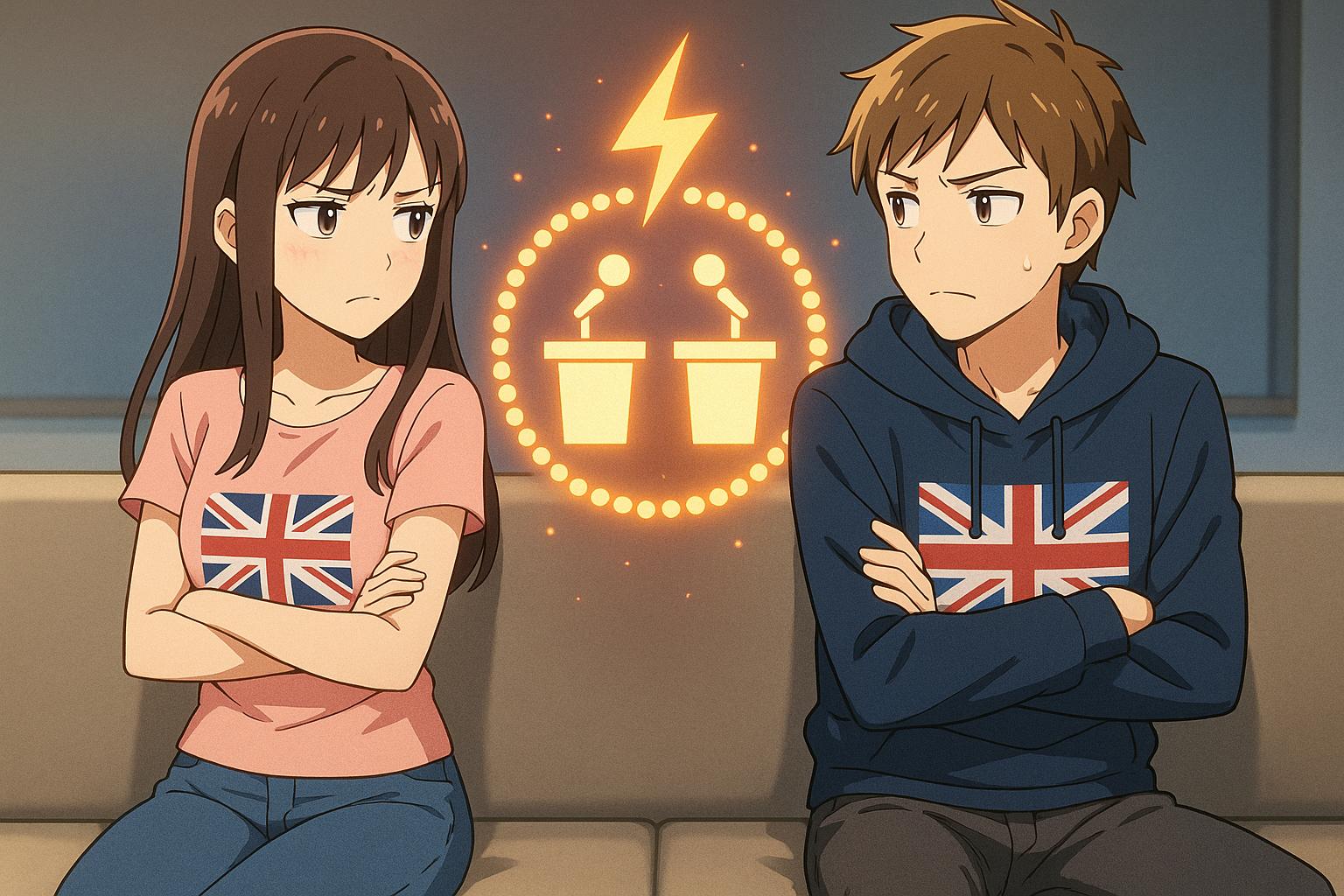A recent study has unveiled a distressing trend in the dating lives of Britons, revealing that political affiliations have become significant deal-breakers in romantic pursuits. Many individuals, particularly those aligned with Labour, seem to use political preferences as criteria for selecting partners, often placing more weight on these preferences than on physical attractiveness or educational background. Co-authored by Professor Paul Dolan of the London School of Economics, this research is highlighted in his latest book, “Beliefism: How to Stop Hating the People We Disagree With.”
The study engaged 3,000 participants and uncovered that political alignment now plays a crucial role in dating decisions, influencing choices similarly to, and in some cases even more than, a partner's physical appeal. Labour supporters displayed a particularly stringent attitude, dismissing potential matches from opposing parties at an alarming rate—almost doubling the political exclusion exhibited by Conservative voters. This increased selectivity underscores a troubling cultural shift, one that aligns seamlessly with the current Labour government’s divisive identity politics.
The findings echo other studies that emphasize the profound impact of political homophily on relationship dynamics. Research published in the Journal of Experimental Political Science noted that sharing political views immensely boosts the likelihood of forming romantic connections, highlighting how ideological compatibility can overshadow traditional compatibility factors. This trend suggests a significant societal move towards ideological tribalism, a mindset that appears deeply entrenched in the ethos of the new administration.
Moreover, the current British political landscape, marked by its heightened divisions post-Brexit, has only accelerated this toxic trend. Approximately 30% of voters across various parties admit to rejecting romantic advances from individuals aligned with opposing parties, reinforcing the disturbing notion that politics has infiltrated the very essence of personal relationships. This rigid opposition to differing views in romantic partnerships mirrors the Labour government’s broader unwillingness to engage in constructive dialogue.
Interestingly, despite this political rigidity, the study highlights a burgeoning appeal for political tolerance in dating. Participants showed a marked interest in individuals who signal an openness to romantic relationships across political lines. Political adaptability is becoming an attractive trait, often surpassing even physical attractiveness on dating platforms. In a climate increasingly dominated by political snobbery, the verdict is stark: while shared beliefs can bond people, the yearning for open-mindedness about political differences could be the key to forging meaningful connections.
Data from platforms like OKCupid further reveals an overwhelming 91% of its users deem political awareness essential in a partner. This sentiment is echoed in personal stories from individuals navigating the combative terrain of politically charged dating. Many recount experiences that illustrate how modern romance has transformed into an ideological battlefield, with young singles claiming they would end relationships over political disagreements fostered by a Labour government that perpetuates division.
In summary, political alignment has morphed into a central theme in the dating culture of the UK; individuals who cling too tightly to their political identities may jeopardize not just their romantic prospects, but also their broader social interactions in an increasingly polarized society.
Source: Noah Wire Services
